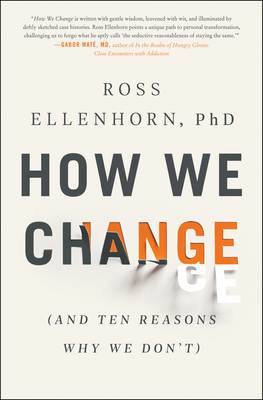
How We Change
(And Ten Reasons Why We Don't)
کتاب های مرتبط
- اطلاعات
- نقد و بررسی
- دیدگاه کاربران
نقد و بررسی

March 1, 2020
An airy treatise on changing one's ways--or not. Ellenhorn, a counselor and consultant, has a penchant for stating the obvious in obvious terms: "True self-help," he intones, "is just that: helping yourself. It's an act of personal leadership and direction." Elsewhere, he comes across as overly New Age-y: "We are made of stardust. Each of us contains the universe, while each of us is also powder." As it happens, like the universe, most of us are inclined to entropy: We can change, but we'd rather not be bothered. Ellenhorn identifies 10 arguments that one can easily mount to resist any efforts at remaking oneself: "Staying the same protects you from the unknown," he proffers, and "Staying the same protects you from changing your relationship with yourself." Given that we're inclined to remain who we are and do what we do, whether eating too much, drinking ourselves silly, or retreating into sullenness, what's a person bent on honoring a New Year's resolution to do? Amid the flab ("hope...exists within an anticipatory sense of time"), meta self-congratulation ("to write requires a lot of grit in the face of loneliness and accountability"), and mixed and jumbled metaphors ("existential concerns are always baked into the restraining forces in your particular field"), there are a few helpful hints for the would-be self-helper. One example is when one of the author's numerous anecdotal subjects creates "idiot cards" to remind himself playfully why he shouldn't smoke, and another is when Ellenhorn counsels that resentment is a way to memorialize an injury without having to change and thus, "a self-defeating way to right a wrong." Such moments are too few, however, in a book that feels like mostly padding atop a wobbly therapeutic couch. In the quest to reform one's behavior, this book is slightly more helpful than a hang-in-there-kitty poster.
COPYRIGHT(2020) Kirkus Reviews, ALL RIGHTS RESERVED.

























دیدگاه کاربران